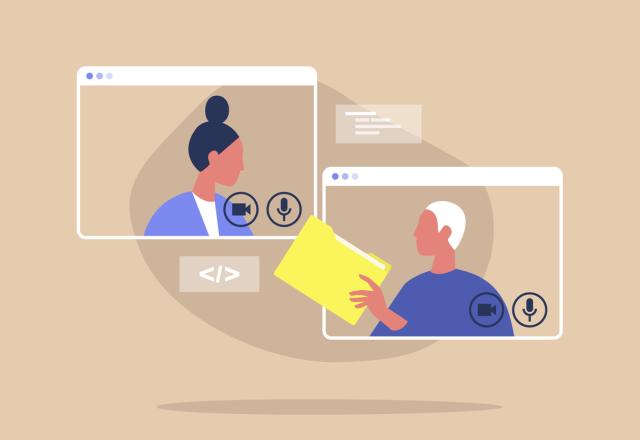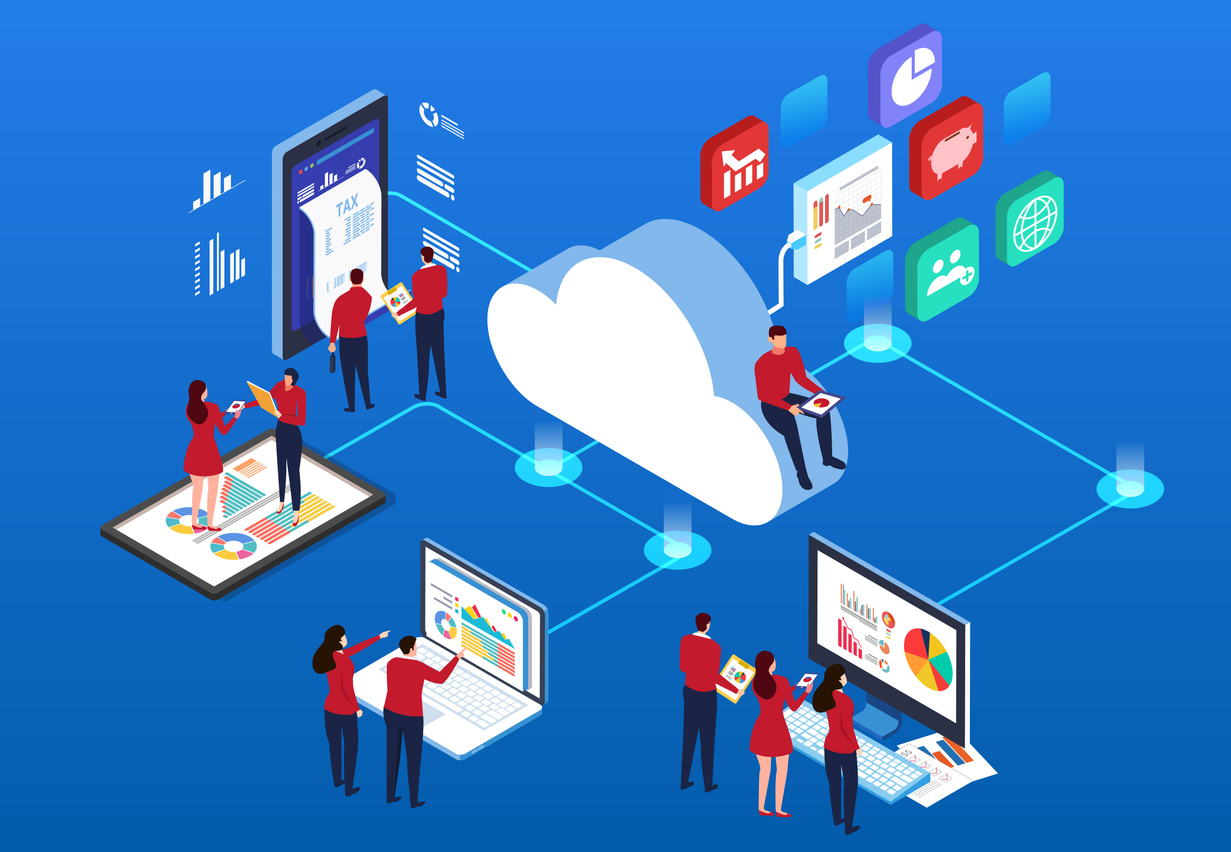
If thinking about scheduling a doctor’s appointment causes tension, and the sight of a medical bill in the mail is cringeworthy, a better way is on the horizon.
What if setting up a doctor’s visit, getting approval from your health insurance for a procedure, and comparing costs for medical care was as easy as hailing a Lyft or ordering dinner on Postmates?
It’s not that far-fetched. Changes in how we share health information digitally mean that in a few years, people will use health care apps just like the ride-hailing and meal-delivery apps that have reinvented transportation and food service.
Health care apps have the power to disrupt many of the ways we give and get care for the better.
Each time we go to the doctor, fill a prescription or make a claim using health insurance, we generate data. This data can paint a pretty clear picture of what’s going right — or wrong — with someone’s health. If pieced together and shared in real time, researchers say this data could lead to more efficient, innovative and effective treatment.
“This wealth of data holds huge potential for health care and can improve the lives of millions of patients worldwide — with better diagnostics, personalized treatments, and early disease prevention,” note the authors of a study published in the journal NPJ Digital Medicine.
But their research comes with a caveat: Health care has traditionally been managed through manual processes and limited by data systems that don’t communicate with each other. “Medical data are only useful if they can be turned into meaningful information.”
Since the early 2000s, health technology experts have worked behind the scenes to do just that, making data easier to share and act upon quickly. Now, federal rules taking hold on July 1 2021, will allow patients to access, control and share their electronic health records freely and securely, using standardized programming tools.
This change is paving the way for the apps that will become the Lyfts and Ubers of health care.
Patients, providers and payers all benefit
The new federal rules will ultimately allow people to manage their health care “the same way they manage their finances, travel and every other component of their lives,” Dr. Don Rucker, national coordinator for health information technology, said in the announcement of the changes.
While patients will find their experience improved on many fronts, providers, health plans and payers like Medicare will also be able to direct resources where they’ll be most effective.
Benefits for people
Health care already has taken steps into the digital age with patient portals like MyChart and MyHealthRecord. These tools allow us to view after-visit summaries, directly email providers and request appointments or medication refills. But their data doesn’t travel easily and; switching doctors or hospitals can mean starting over.
With open data sharing, we’re in charge of who gets our information. Apps like Journi, developed by Cambia Health Solutions, can seamlessly keep track of the whole family’s health history and share it as needed — with different providers, insurance companies, pharmacies, etc.
Apps can also remind you to refill prescriptions, use phone location services to recommend highly rated doctors near home or work, and draw on existing medical history to help us be better informed in our care decisions.
“When you’re sitting in the doctor's office, you’re extremely vulnerable,” says Laurent Rotival, chief information officer and senior vice president of strategic technology solutions at Cambia. As apps like Journi become more sophisticated, they’ll recognize when we’re at the doctor and help to guide us through that experience, Rotival explains.
The app will be able to see provider recommendations, how effective the suggested treatment is, and how much it’s likely to cost. Based on that, push notifications can prompt conversations with a provider about other options to consider.
“It could be the same thing for medications,” Rotival says. “The app may see that your doctor is prescribing XYZ. So it says, ‘by the way, there’s a couple of alternatives that we believe are more effective and lower cost. Ask about that.’”
This sort of free-flowing information can level the playing field, he adds. “And it’s happening in real time, while you're sitting there.”
Partnerships to bring about systems change
The federal government’s move to make data more accessible across health care systems has attracted partners industry wide. But as with any large-scale change, it’s been slow going.
Adding to the complexity is that each hospital, doctor’s office or provider group has different needs.
Industry leaders are joining together to deliver on the promise of real-time data sharing regionally and nationally.
Cambia, for example, is a founding board member of The CARIN Alliance, a consortium of health care and technology experts who advocate for consumers to easily get, use and share their digital health information. Other members of its board include Apple, Microsoft and several large hospital systems and patient advocacy groups.
The future is — almost — here
Now that federal regulations are catching up to technology, how long will it take before we’re able to manage our health care as easily as calling a Lyft?
We’re tantalizingly close, says Rotival. But in order for health apps to reach their full potential, they have to layer a lot of technological services together. And many of those services are still being developed.
Cambia is rolling out its app regionally and aims to expand on a national scale in coming years. Dozens of other developers are doing the same. What’s encouraging, Rotival adds, is that these health care innovators now have the backing of their institutions, whether in government or the private sector.
“The time is right, and it is possible. What is taken for granted outside of health care can happen in health care, too. We’re finding that it doesn’t take that many people to do extraordinary things.”
Learn more:
- Data empowers patients and providers, Wall Street Journal
- Integrated Care Interoperability: Benefits and Importance, NextGen Healthcare
- Health Plans Must Go Beyond the ONC Mandate and Prioritize Member Experience, HIT Consultant
- HL7 Da Vinci Project
- CARIN Alliance
- Journi health care app
- CARIN’s list of health data apps
